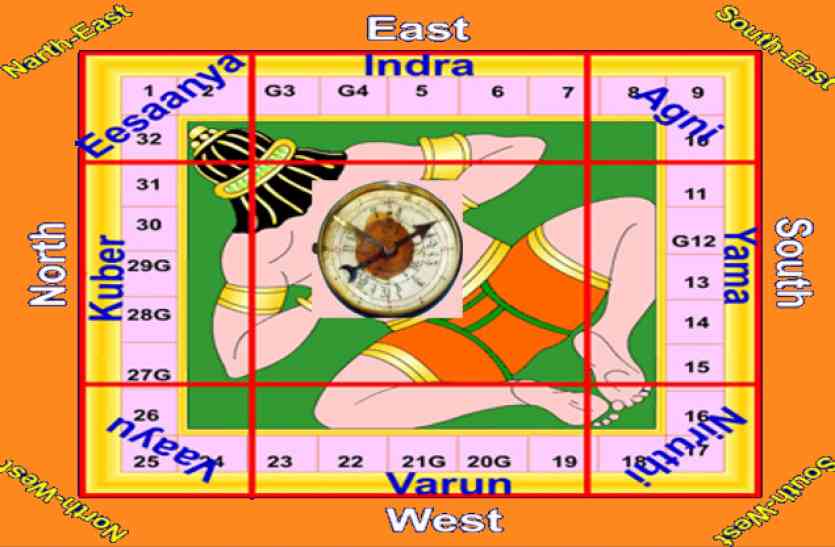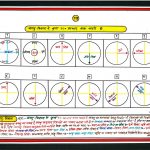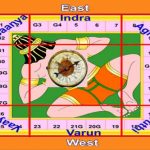Vastu Shastra is essentially about directions, different regions of your residence and what should be in each region. A compass can be very helpful in determining these directions.
The Vastu Compass
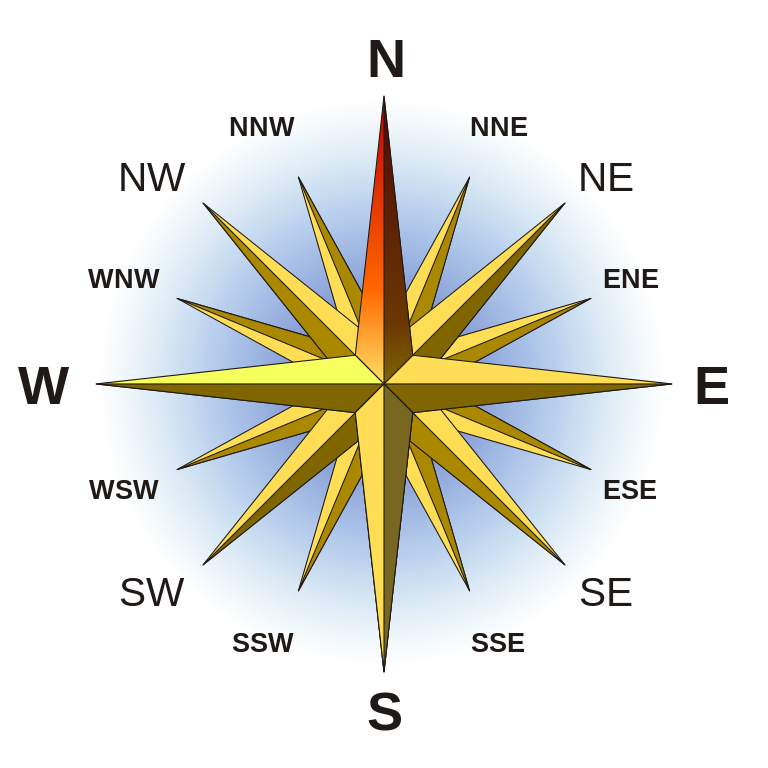
The Vastu Compass is an instrument that has the main Vastu directions marked on it – North, South, East, West, Northeast, Southwest, Northwest. and Southeast. Some also have pointers for directions in-between.
These devices help you correctly map out the regions of your house. You can then determine whether your planned layout matches with the Vastu principles or not.
The Vasu Compass Types
There are two types of Vastu Compass instruments – The Pivotal Compass and the Floating Compass.
The Pivotal Compass needs good placement. It has to be placed on the ground, or a level surface, in the centre of the house. Once you do this, the compass will align itself. The red-tipped arrow will point to North and so every other direction will also be properly aligned.
The Floating Compass need not be placed on the ground. You can keep it in your hand while standing in the centr of the house or plot. Then, wait till the needle with the red trip stops moving. You have to check if the needle aligns correctly with the N mark on the disc beneath it. If not, move around slowly until the arrow tip aligns with the N mark. Now you have identified the correct North of the house.
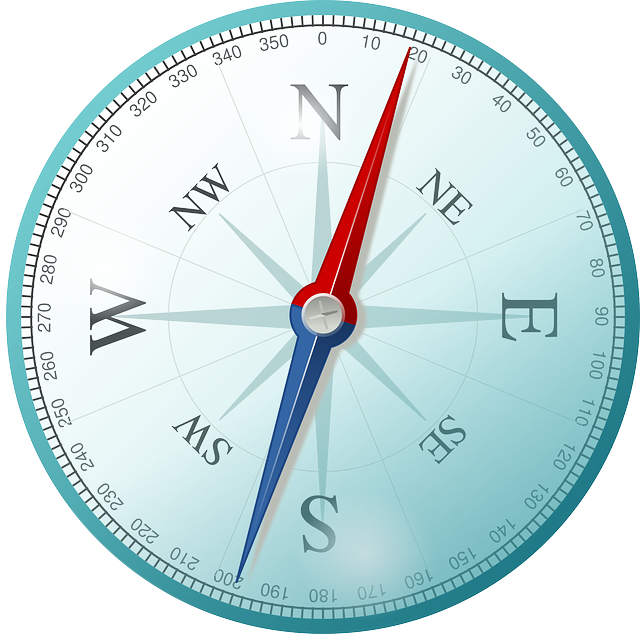
After this, you can carry out the task of checking to see if the planned layout is right according to Vastu or if your constructed house is in alignment with the Vastu Shastra layout.
Vastu Shastra Charts
If you are not sure about the exact Vastu Shastra layout for your building, don’t worry. Most Vastu Compass kits come with charts that show the desired layout for different structures. You get eight different charts for eight different types of buildings. Most of them are related to your home.
The Eight Common Charts You Get
- Residence
- Living Room
- Kitchen
- Bedroom
- Office
- Shop
- Dispensary
- Factory
The first four deal with your home. Residence chart gives the desired layout for the rooms in your home. The living room, kitchen, and bedroom charts give you an idea of where the doors should be, where to place the furniture, etc. For instance, a bedroom chart can show the best bed placements, which direction you should sleep, etc.
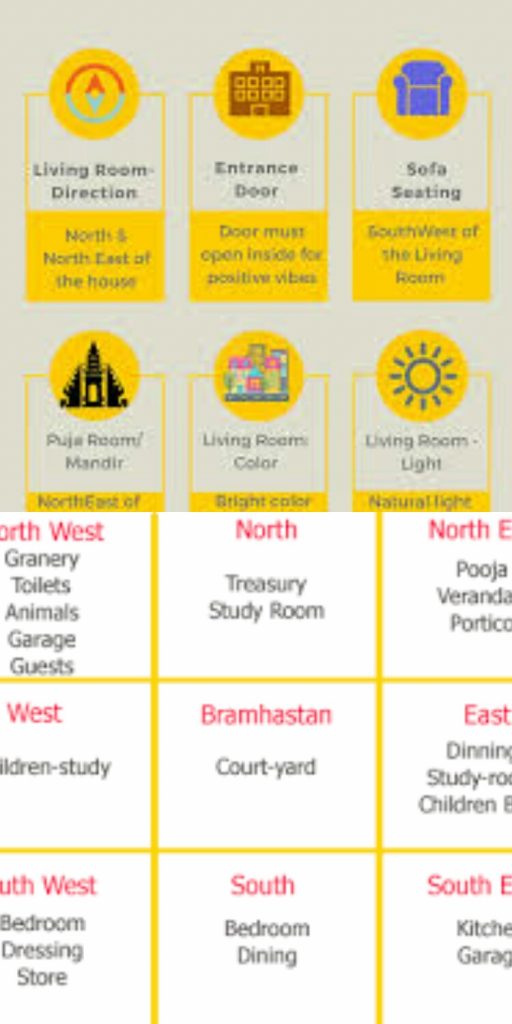
You generally get charts for living room, bedroom, and kitchen. These are the major areas that have an influence on the positive or negative energy in your house.
You can also get charts for hotels and other structures. Choose the appropriate chart and place it on the Vastu compass dial. The compass pin should come through the center point of the chart. You then place the needle over the pin and then get the directions to align properly. You can now check whether your layout of rooms, your placement of furniture, pieces of equipment, etc, are all in compliance with Vastu Shastra guidelines.
Is Your Building In-Line With The Guidelines?
For instance, Vastu Shastra prescribes that the living room should be in the North or northwest. A Living Room is generally the first room when you enter a home, the place where you entertain guests. So, it is the place through which positive or negative energy enters the room, where guests leave their own vibrations. A well-located and well-designed living room can help siphon out negative energy while retaining and enhancing positive energy.
Other Vastu Shastra recommendations for the living room include the suggestion that a sloping roof should slant towards the East or North. The entrance to the living room should also be in the East or North, ideal for prosperity and general well-being of the residents.

Thus, each chart can help with the design of specific buildings or rooms as well as planning the uses of areas within the room. Using a Vastu compass with the associated chart can help you to easily plan your building’s layout and the placement of furniture and other objects within the rooms.
Experts advise against the use of Vastu compass apps as they might not be accurate. You should also be careful when using a floating compass as it tends to be affected by cell phones, magnets, etc. Use a good physical Vastu compass, either the Pivotal Compass or the Floating Compass. Find the center of the building and align the compass directly with the north of the structure. You can then begin to compare the actual layout of the building and see how it deviates from Vastu Shastra recommendations. You can then suggest how it can be changed to bring the structure in alignment with Vastu Shastra rules.




